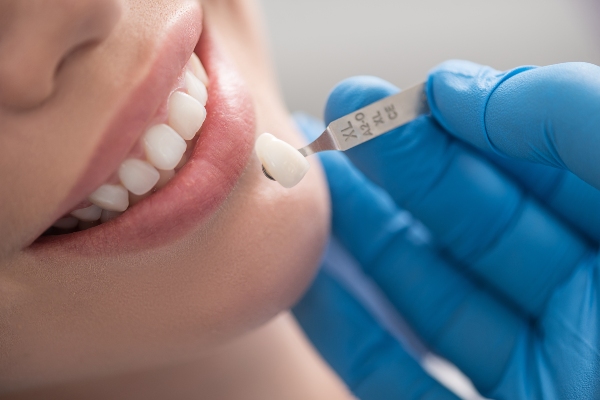Tips From a Preventive Dentist for a Healthier Smile

Looking for information on preventive dentistry? Read on to learn more. A good preventive dentist can save you money on significant tooth problems, pain, and costly treatments in the future. All treatments or procedures that prevent tooth decay, tooth damage, and gum disease fall under preventive dentistry. Fortunately, when preventive dentistry is incorporated into daily life, maintaining good oral health becomes simple.
Preventive dentistry tips
The following are tips from a preventive dentist to maintain a healthy smile for a long time:
Brush twice a day
Brushing the teeth twice per day is a foundational preventive step against oral health issues. Individuals should brush their teeth in the morning and at night to remove plaque, bacteria, and debris that may have gathered from eating and drinking during the day. Forgetting to brush the teeth before going to bed puts the teeth at risk of cavities and gum disease.
Floss daily
Flossing at least once daily is one of the simplest and most important steps for maintaining good oral health. Flossing removes plaque and grime from between the teeth and under the gum line. The bacteria in plaque are largely responsible for gum disease and cavities.
It is advisable to floss brushing the teeth in the evening. Flossing before brushing removes the buildup on the teeth that the toothbrush cannot reach. Flossing before bedtime helps keep clean teeth and prevents plaque buildup in the mouth.
Don't skip regular dental checkups and cleanings
Individuals should make appointments for exams and cleanings to keep their teeth healthy. During the checkup, the dentist will clean the teeth thoroughly to eliminate plaque and tartar from the surface area of the teeth and under the gum line. They will also examine the oral cavity for any signs of dental problems. If there are issues, they will offer treatments to restore normal oral health.
Replace toothbrushes every three months
Toothbrushes have a short lifespan. Once the bristles wear out, they end up much less efficient at cleaning the teeth. The toothbrush could also get contaminated with bacteria accumulation. A preventive dentist recommends replacing toothbrushes or toothbrush heads each quarter. A good idea would be to set a reminder to change it.
Do not delay treatments
Major issues often start small. Typically, when there are issues, patients should ensure that they seek dental treatments when necessary as part of preventive dental care. This means not postponing treatment for a basic filling for a year only to have a root canal done later on. When dental problems are not dealt with immediately, they can cause substantial damage and discomfort. It may also require more extensive and more expensive treatments.
Undergo teeth straightening
Realigning one’s teeth and bite is not for the aesthetics alone. It also improves overall dental health. If the teeth are crooked, gapped, crowded, or misaligned, bacteria, food and plaque may easily accumulate in those hard-to-reach spots. The plaque then hardens into tartar, ultimately causing gum disease and tooth decay. Misaligned bites can also cause TMJ problems and jaw pain. An orthodontic treatment such as braces or clear aligners can straighten the teeth and prevent serious dental problems.
Get a mouthguard
Waking up with jaw pain or a headache might signal teeth grinding during the night. Clenching and grinding are harmful unconscious behaviors that can crack or chip the teeth. Dental crowns and porcelain veneers may be necessary eventually to restore healthy tooth height. The dentist may recommend a mouthguard to wear during sleep to avert the issue.
Drink more water
Drinking enough water reduces the number of bacteria in the mouth. Plaque and bacteria can accumulate on the teeth after consuming sugary drinks. Water helps with saliva production, which in turn helps to prevent dry mouth. It is important to drink enough water daily so that you can remain hydrated throughout the day.
Reduce sugar intake
Most processed foods have added sugar. After eating a piece of cake, sugar builds up on the teeth. Reducing sugar consumption can help in preventing plaque buildup, but it is also helpful in maintaining good overall health. The American Heart Association suggests women limit sugar to 25g daily. For men, the recommended daily sugar intake is 37.5g.
In conclusion
You can have a healthy smile by following these tips from a preventive dentist. Book a consultation with our office today if you have not had a dental checkup in over six months.
Request an appointment here: https://www.tanqueverdedental.com or call Oro Valley Family Dentistry at (520) 833-5261 for an appointment in our Tucson office.
Check out what others are saying about our dental services on Yelp: Preventative Dental Care in Tucson, AZ.
Related Posts
Fluoride treatments are very important in preventative dental care. Every patient wants their dentist to provide them with all the necessary tools to keep their smile bright and white. You go to the dentist twice a year as recommended and brush and floss your teeth regularly.Doing your part in your oral care routine only goes…
Preventative dental care is an important necessity when it comes to taking care of your teeth and gums. Your dentist is your primary defense in dental health. Early detection and treatment of any oral issue are vital in keeping your original teeth looking healthy and staying strong the longest.Be sure to schedule a dental checkup…
If you are new to preventative dental care, you may not know the importance of taking care of your teeth. It is easy to become overwhelmed with all the advice available for toothpaste and dental floss, but there are a few simple things that will go a long way in helping to prevent problems down…
Preventative dental care has long been the focus of dentists and patients alike. Taking proactive steps to protect your teeth and gums not only helps you prevent tooth decay and gum disease but can also decrease your risk of developing other illnesses such as heart disease, stroke, cancer, and diabetes. Here’s how oral health affects…


